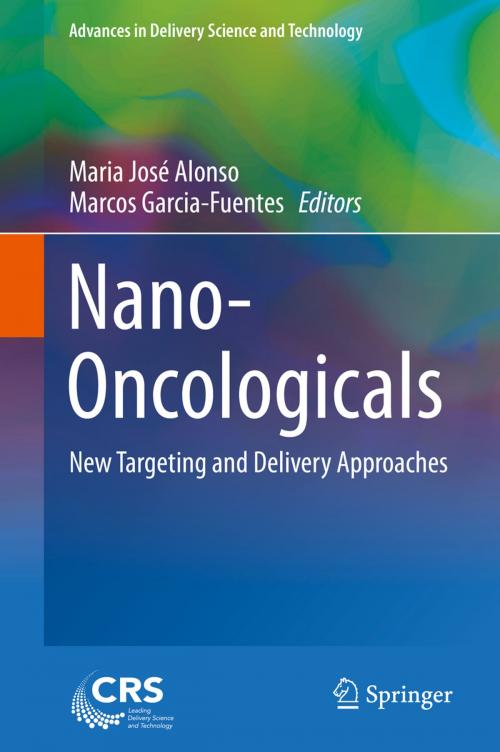Nano-Oncologicals
New Targeting and Delivery Approaches
Nonfiction, Health & Well Being, Medical, Specialties, Pharmacy, Science & Nature, Technology, Engineering, Chemical & Biochemical| Author: | ISBN: | 9783319080840 | |
| Publisher: | Springer International Publishing | Publication: | October 15, 2014 |
| Imprint: | Springer | Language: | English |
| Author: | |
| ISBN: | 9783319080840 |
| Publisher: | Springer International Publishing |
| Publication: | October 15, 2014 |
| Imprint: | Springer |
| Language: | English |
This authoritative volume focuses on emerging technologies in cancer nano medicine, characterized by their multi-functionality and potential to address simultaneously diverse issues of clinical relevance in the treatment of cancer. The book consists of sixteen chapters divided into six sections: 1) Biological Barriers in Cancer; 2) Tumor Targeting; 3) Targeting the Immune System; 4) Gene Therapy; 5) Nano theranostics and 6) Translational Aspects of Nano-Oncologicals. The volume starts with an introduction describing the biological barriers associated with cancer therapy and highlighting ways to overcome such barriers through the use of nanotechnology. This is followed by an analysis of the two major targeting strategies currently under investigation in cancer therapy: namely, the targeting of cancer cells and the targeting of the immune system. In the first case, the book presents liposomal and polymer-based therapies, including photodynamic approaches. In the second case, it analyzes in detail the possibility of either improving the efficiency of the immune system toward preventing cancer progression (cancer immunomodulation) or generating responses against specific cancer antigens (cancer vaccines).
Beyond these targeting options, Nano-Oncologicals: New Targeting and Delivery Approaches presents the most recent technological advances in the area of nucleic acid-based therapies, along with those in the area of theranostics, where the design of multifunctional nano carriers becomes vital. Following the study of the most promising nanotechnologies around the development of nano-oncologicals, the book ends with an overview of regulatory and toxicological issues, which are critical in their translational pathway, and the presentation of a nucleic acid-based therapy case-study. This book is an important resource for scientists interested in the design and development of anticancer nanotechnologies and also to those aiming to push their technology through clinical development.
This authoritative volume focuses on emerging technologies in cancer nano medicine, characterized by their multi-functionality and potential to address simultaneously diverse issues of clinical relevance in the treatment of cancer. The book consists of sixteen chapters divided into six sections: 1) Biological Barriers in Cancer; 2) Tumor Targeting; 3) Targeting the Immune System; 4) Gene Therapy; 5) Nano theranostics and 6) Translational Aspects of Nano-Oncologicals. The volume starts with an introduction describing the biological barriers associated with cancer therapy and highlighting ways to overcome such barriers through the use of nanotechnology. This is followed by an analysis of the two major targeting strategies currently under investigation in cancer therapy: namely, the targeting of cancer cells and the targeting of the immune system. In the first case, the book presents liposomal and polymer-based therapies, including photodynamic approaches. In the second case, it analyzes in detail the possibility of either improving the efficiency of the immune system toward preventing cancer progression (cancer immunomodulation) or generating responses against specific cancer antigens (cancer vaccines).
Beyond these targeting options, Nano-Oncologicals: New Targeting and Delivery Approaches presents the most recent technological advances in the area of nucleic acid-based therapies, along with those in the area of theranostics, where the design of multifunctional nano carriers becomes vital. Following the study of the most promising nanotechnologies around the development of nano-oncologicals, the book ends with an overview of regulatory and toxicological issues, which are critical in their translational pathway, and the presentation of a nucleic acid-based therapy case-study. This book is an important resource for scientists interested in the design and development of anticancer nanotechnologies and also to those aiming to push their technology through clinical development.















